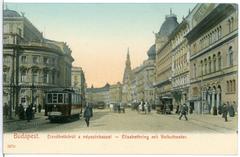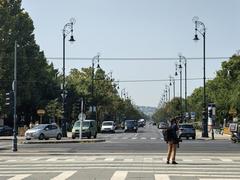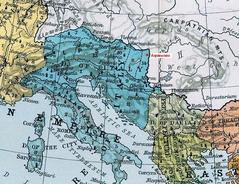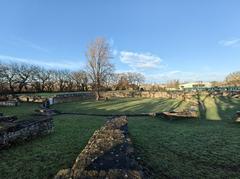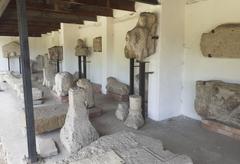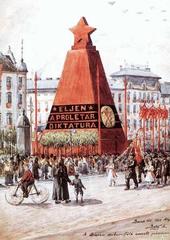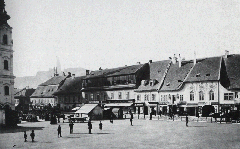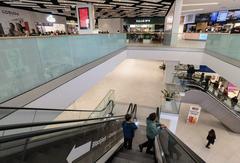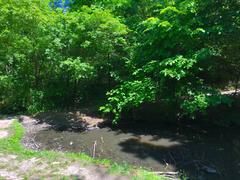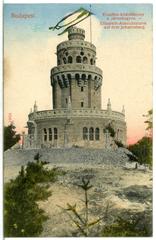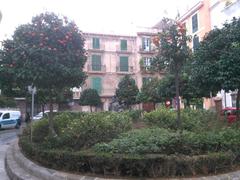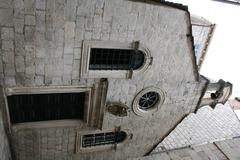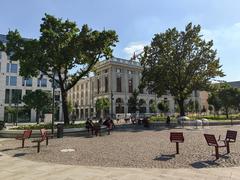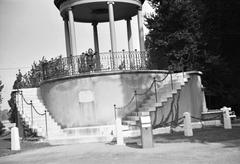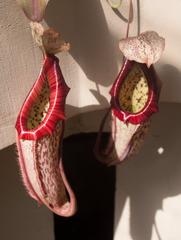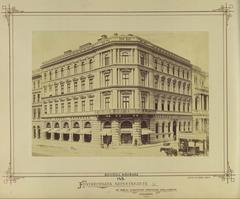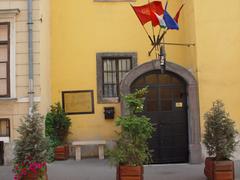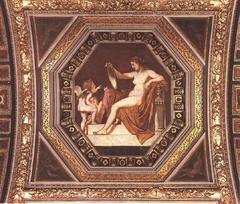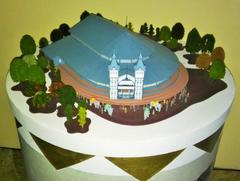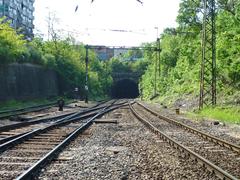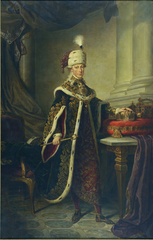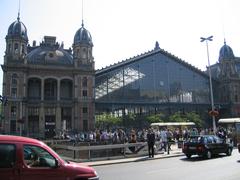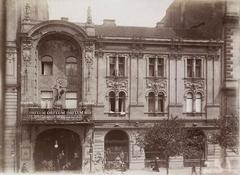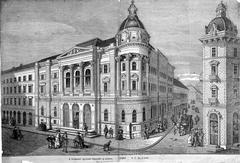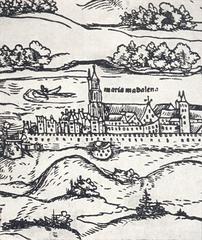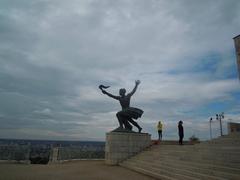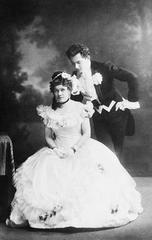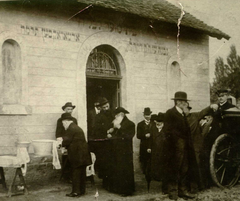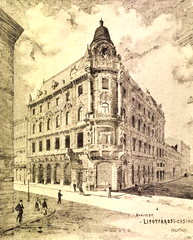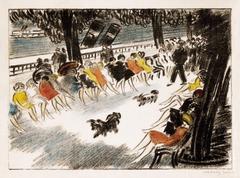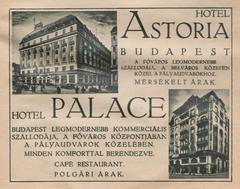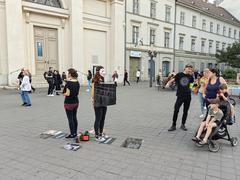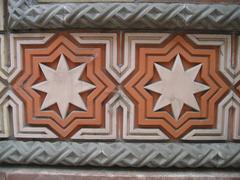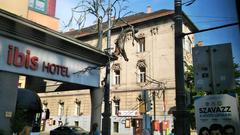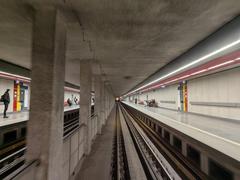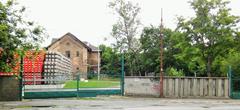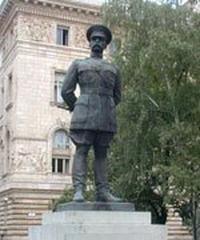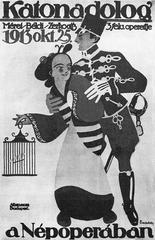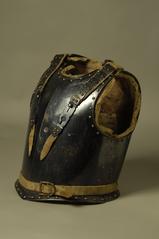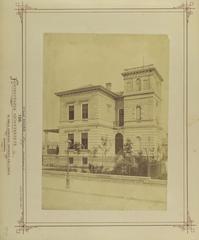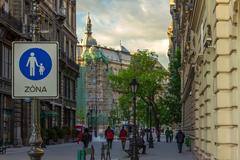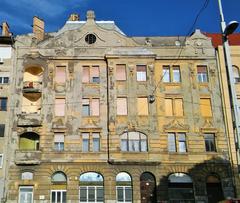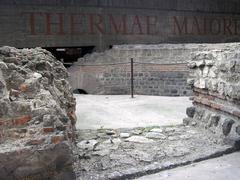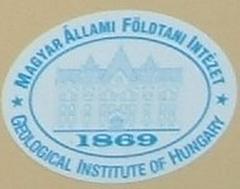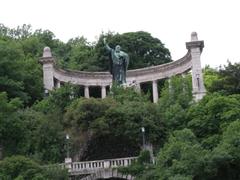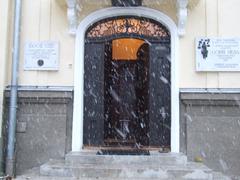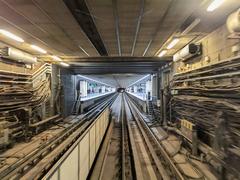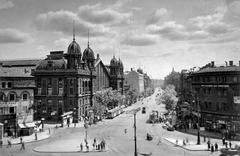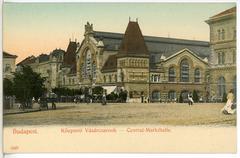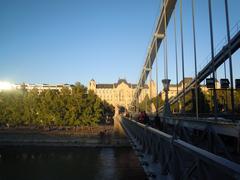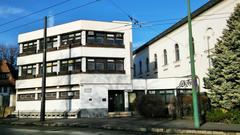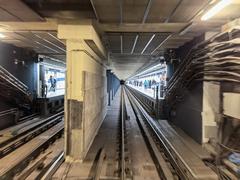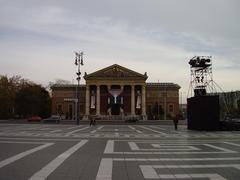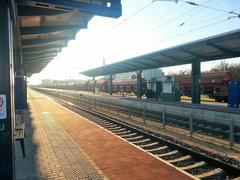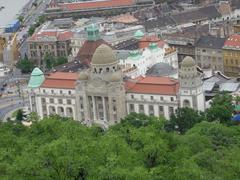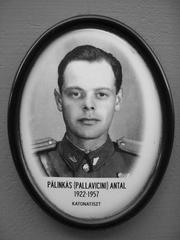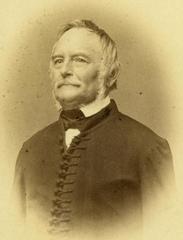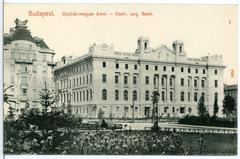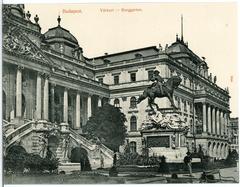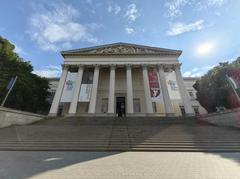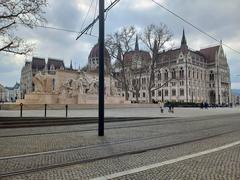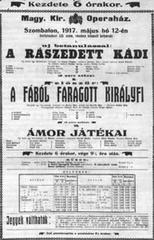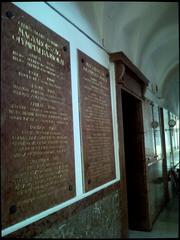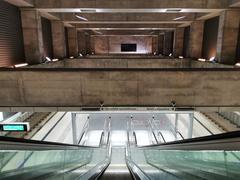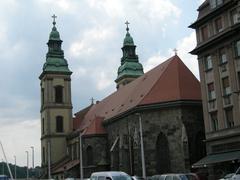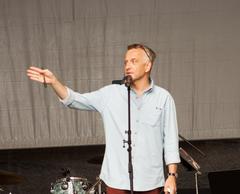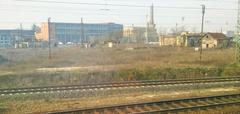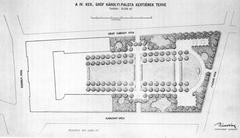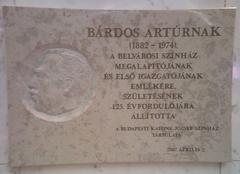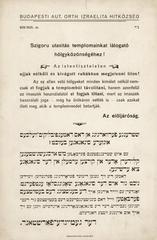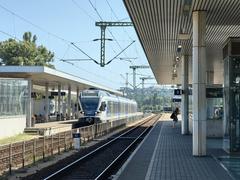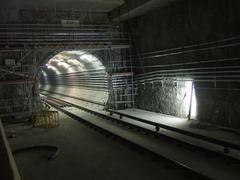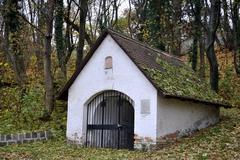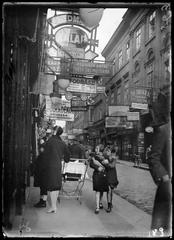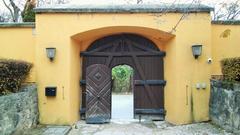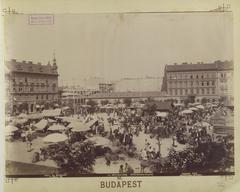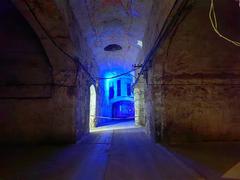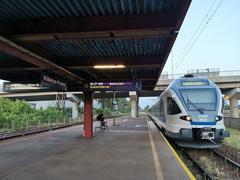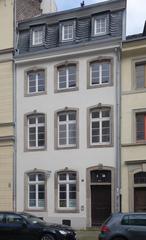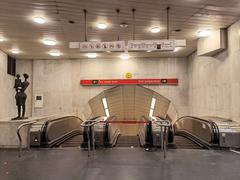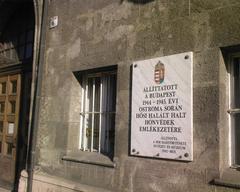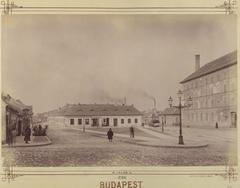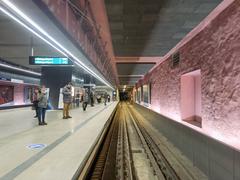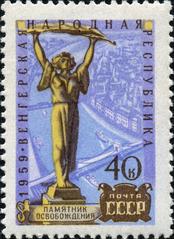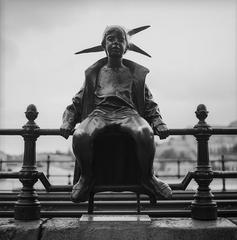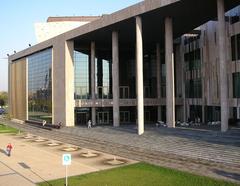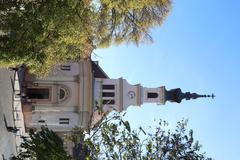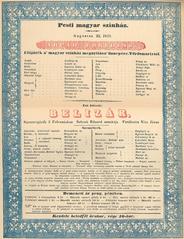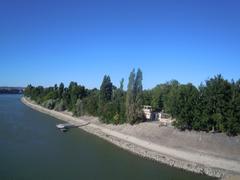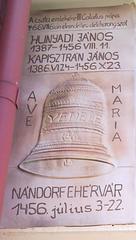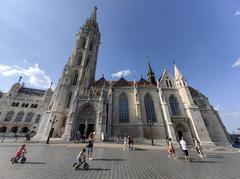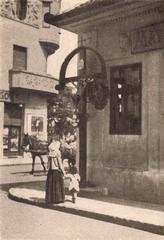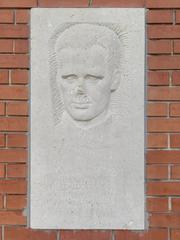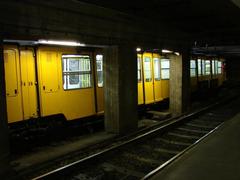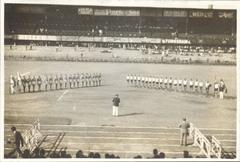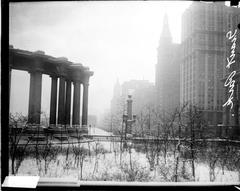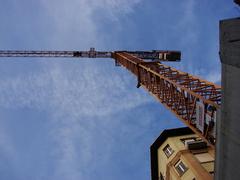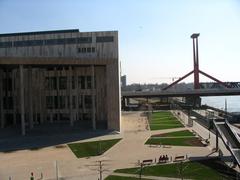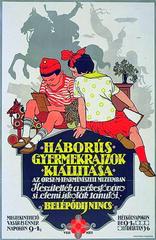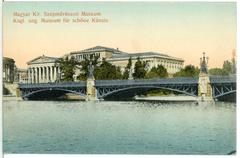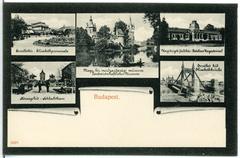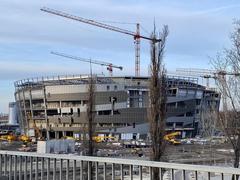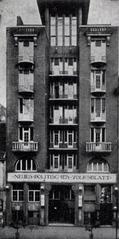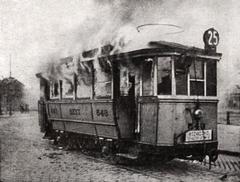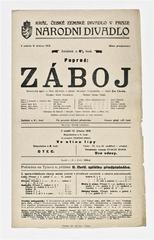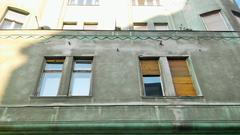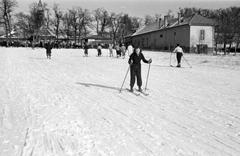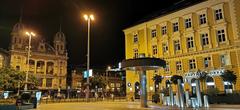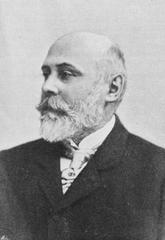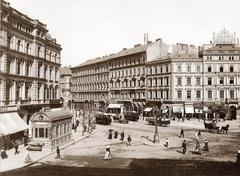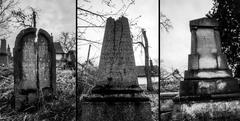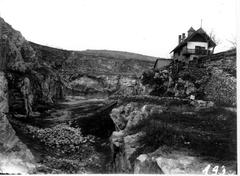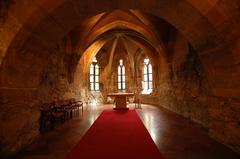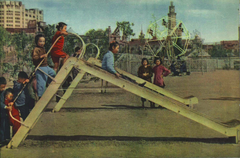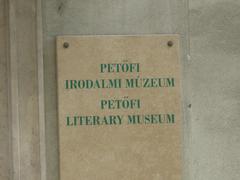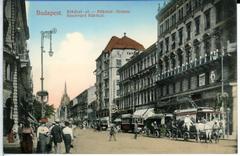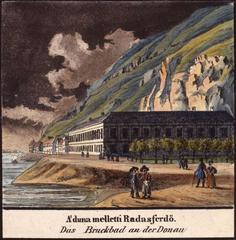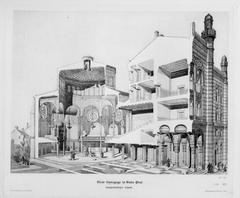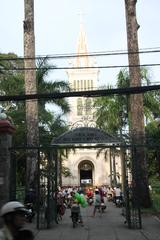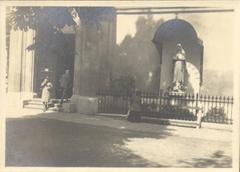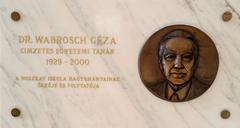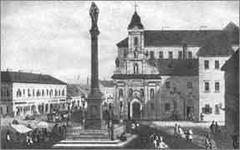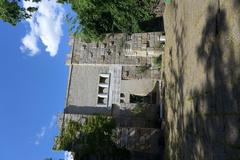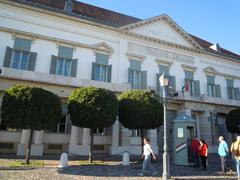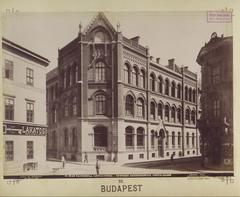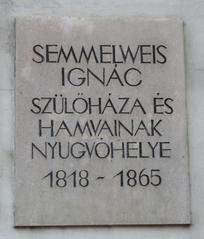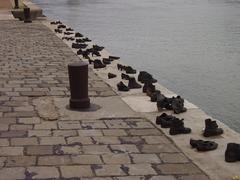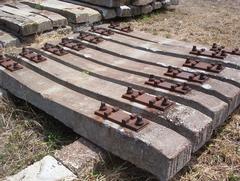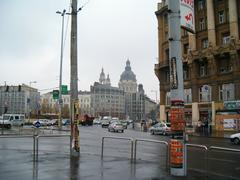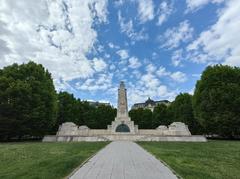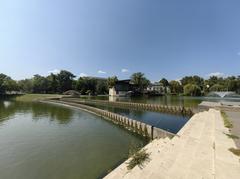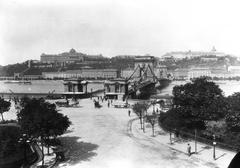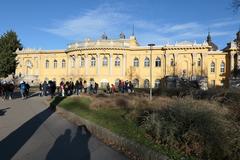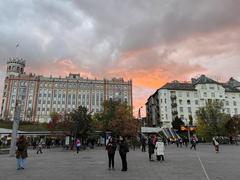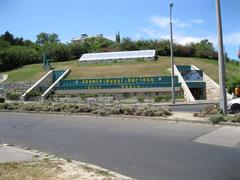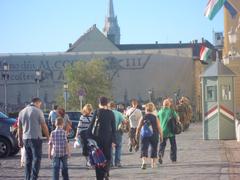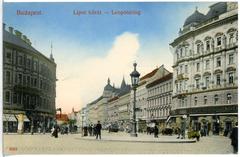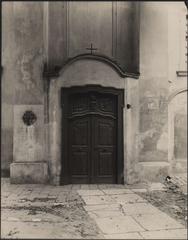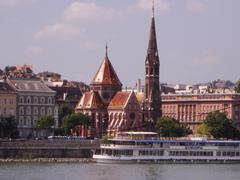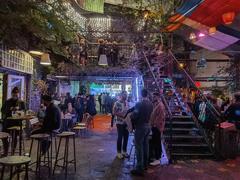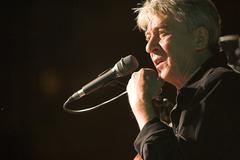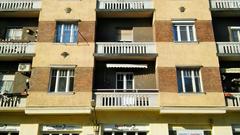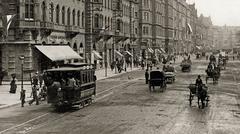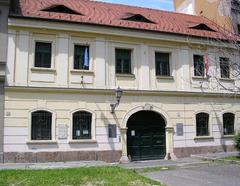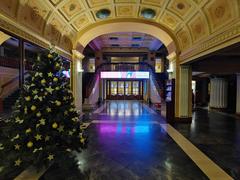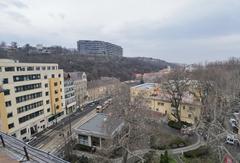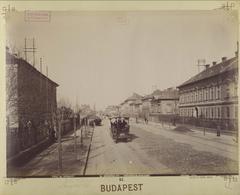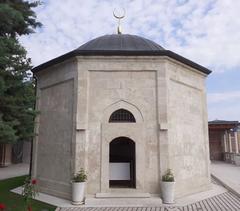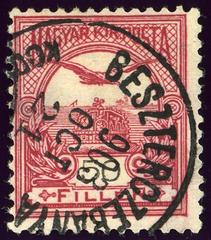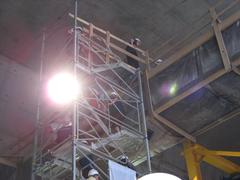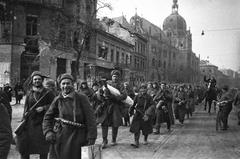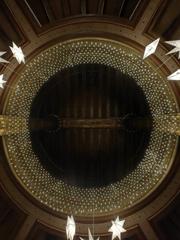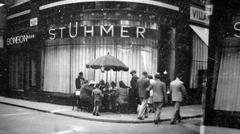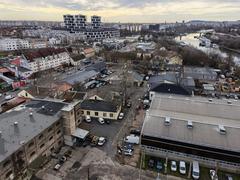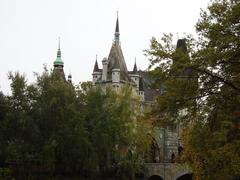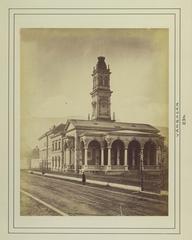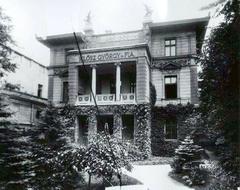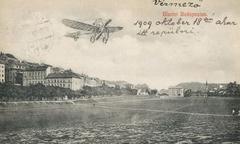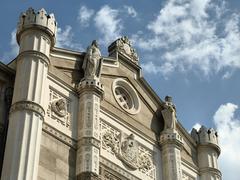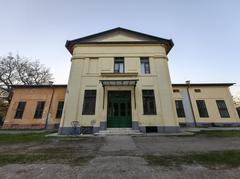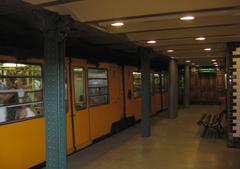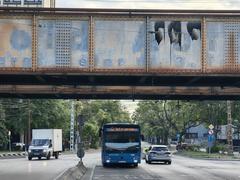Auróra Utca Budapest: Visiting Hours, Tickets, and Historical Sites Guide
Date: 04/07/2025
Introduction
Auróra Utca, set in Budapest’s dynamic District VIII (Józsefváros), is a vibrant emblem of the city’s evolving urban landscape, rich history, and dynamic alternative culture. Emerging during the city’s rapid expansion in the late 19th century, Auróra Utca has witnessed profound social, political, and architectural transformations that mirror Budapest’s broader historical narratives (Wikipedia: History of Budapest). Today, the street is celebrated for its grassroots activism, artistic expression, and the renowned Auróra Community and Cultural Center, which stands at the heart of its progressive spirit (Just Budapest: History of Budapest; We Love Budapest).
This guide provides comprehensive insights for prospective visitors—highlighting the street’s historical significance, cultural offerings, practical information on visiting hours and tickets, accessibility, nearby attractions, and expert tips for an authentic Budapest experience.
Historical Evolution of Auróra Utca
Urban Development and Origins
Auróra Utca’s emergence is closely linked to the urbanization of Pest after the 1873 unification of Buda, Pest, and Óbuda into Budapest (Wikipedia: History of Budapest). Influenced by Parisian urban planning, the area was designed with wide boulevards and new districts, with Auróra Utca serving as a connector within the lively Józsefváros neighborhood.
Józsefváros: A Microcosm of Social History
Józsefváros, which houses Auróra Utca, has long been a melting pot of cultures and classes. In the late 19th and early 20th centuries, it was populated by working-class Hungarians, sizable Jewish communities, and immigrants from across the Austro-Hungarian Empire, reflected in the eclectic architecture and community institutions (Just Budapest: History of Budapest). The turmoil of the World Wars, especially the tragic deportation of Jewish residents during the Holocaust, left a lasting mark on the area, commemorated by memorials throughout the district.
Communist Era and Post-Communist Renewal
Under Communist rule post-World War II, the district saw the rise of utilitarian architecture and nationalized buildings. Despite periods of neglect, the area retained its cultural vibrancy. The fall of Communism in 1989 sparked new restoration efforts and the growth of alternative cultural spaces, setting the stage for Auróra Utca’s modern transformation (Just Budapest: History of Budapest).
21st Century: Culture and Activism
Auróra Utca is now synonymous with grassroots activism and cultural innovation. The Auróra Community Center at Auróra utca 11 is a hub for NGOs, artists, and progressive social movements, hosting diverse events from art exhibitions to workshops on social justice (All Events: Auróra). This vibrant center symbolizes the district’s shift from marginalization to a celebrated center of alternative culture.
Visiting Auróra Utca: Hours, Tickets, and Accessibility
- Street access: Auróra Utca is open to the public year-round.
- Auróra Community Center hours: Generally open Tuesday–Sunday, from 10:00 AM to 10:00 PM. Event times may vary; check the official website for schedules.
- Entry fees: The street itself is free to explore. Many events at the Community Center are free or donation-based, but some concerts and workshops may have ticket fees (typically 500–2,000 HUF). Confirm details in advance (All Events: Auróra).
- Accessibility: The street and venue are pedestrian-friendly, and the Auróra Center offers accessible facilities. Visitors with specific needs should contact venues ahead of time.
Getting There
Public Transportation
- Metro: Nearest is Blaha Lujza tér (M2, Red Line), a 10-minute walk from Auróra Utca (Budapest Metro Guide).
- Tram: Lines 4 and 6 on the Grand Boulevard stop at Blaha Lujza tér (Budapest by Locals).
- Bus: Numerous lines serve the area, including night buses for late events (BKK).
- Trolleybus: Lines 73 and 76 stop nearby.
Tickets are available at stations, newsstands, or through the BudapestGO app. Validate tickets before boarding (Budapest.net).
Walking and Cycling
The area is pedestrian-friendly, and Budapest’s public bike-sharing system (MOL Bubi) has stations nearby (BKK).
Parking
Parking is limited, regulated, and often metered—consider garages or hotels for longer stays (Travel Notes & Beyond).
Auróra Community and Cultural Center: Highlights
- Participatory model: Operates as a “mini-democracy” with collective decision-making (We Love Budapest).
- Diverse events: Hosts live music, workshops, exhibitions, LGBTQ+ events, community dialogues, and more (All Events: Auróra).
- Facilities: Includes event spaces, a courtyard garden, bar/kitchen, and NGO offices.
- Accessibility: Designed to welcome all visitors; contact the venue for specific needs.
Cultural and Nightlife Scene
Auróra Utca and its Community Center anchor District VIII’s alternative nightlife and art scene (Budapest Flow). The area is known for an eclectic crowd, “ruin bar” vibes, and community-driven programming distinct from commercial venues.
Nearby Attractions
- Old Jewish Quarter: Explore synagogues, memorials, and cafes.
- Hungarian National Museum: A short walk away, offering historical exhibitions.
- Ruin Bars: Szimpla Kert, Instant/Fogas, and others provide a broader alternative nightlife experience.
- Blaha Lujza tér: A major transport hub with shops and eateries.
Practical Tips
- Plan ahead: Check event calendars on the Auróra website or social media.
- Arrive early: For popular events or workshops.
- Carry cash: Many venues accept cards, but cash is useful for small purchases.
- Stay aware: The neighborhood is safe but retains some urban character; use standard city caution.
- Engage: Staff and locals are welcoming and happy to offer recommendations.
Accessibility and Visitor Information
- Most public transport is accessible; some older buildings may have limited access (BKK).
- English is widely spoken at cultural venues.
- Wi-Fi is commonly available in cafés and at the Community Center.
Accommodation
Nearby hostels, boutique hotels, and apartments offer options for all budgets. Booking ahead is advisable during peak seasons (Travel Notes & Beyond).
FAQ
Q: Are there entrance fees for Auróra Utca?
A: The street is public and free. Some events at the Community Center may require tickets.
Q: What are the best times to visit?
A: Evenings and weekends, when most cultural events take place, are ideal.
Q: Is Auróra Utca accessible by wheelchair?
A: Public transport and newer venues prioritize accessibility; confirm with specific event spaces as older buildings may have limitations.
Q: Can I join a guided tour?
A: Some city walking tours include District VIII and Auróra Utca; check with local operators.
Visuals and Media
- Add high-quality images showcasing the street, the Auróra Community Center, and event scenes. Alt tags should include keywords like “Auróra Utca Budapest” and “Auróra Community Center.”
- An interactive map highlighting public transport stops, bike stations, and key venues is recommended.
Internal and External Links
- Auróra Official Website
- BudapestGO App
- Budapest Metro Guide
- Travel Notes & Beyond
- We Love Budapest: Auróra Venue
- Ultimate Budapest: Guide for Culture and History Lovers
- Budapest Flow
Conclusion and Call to Action
Auróra Utca exemplifies Budapest’s blend of history, cultural vitality, and social activism. Whether you’re drawn by its architectural charm, community-driven events, or alternative nightlife, the street offers a rewarding and authentic slice of city life. For the latest information, check the Auróra Community Center website and download the BudapestGO app for seamless travel planning.
Plan your visit now—immerse yourself in Auróra Utca’s unique atmosphere and discover why this street is at the heart of Budapest’s living heritage.
Sources
- Wikipedia: History of Budapest
- Just Budapest: History of Budapest
- All Events: Auróra
- We Love Budapest: Auróra Venue
- Ultimate Budapest: Guide for Culture and History Lovers
- Auróra Official Website
- Budapest Metro Guide
- Budapest by Locals
- BKK
- Travel Notes & Beyond
- Budapest Flow
